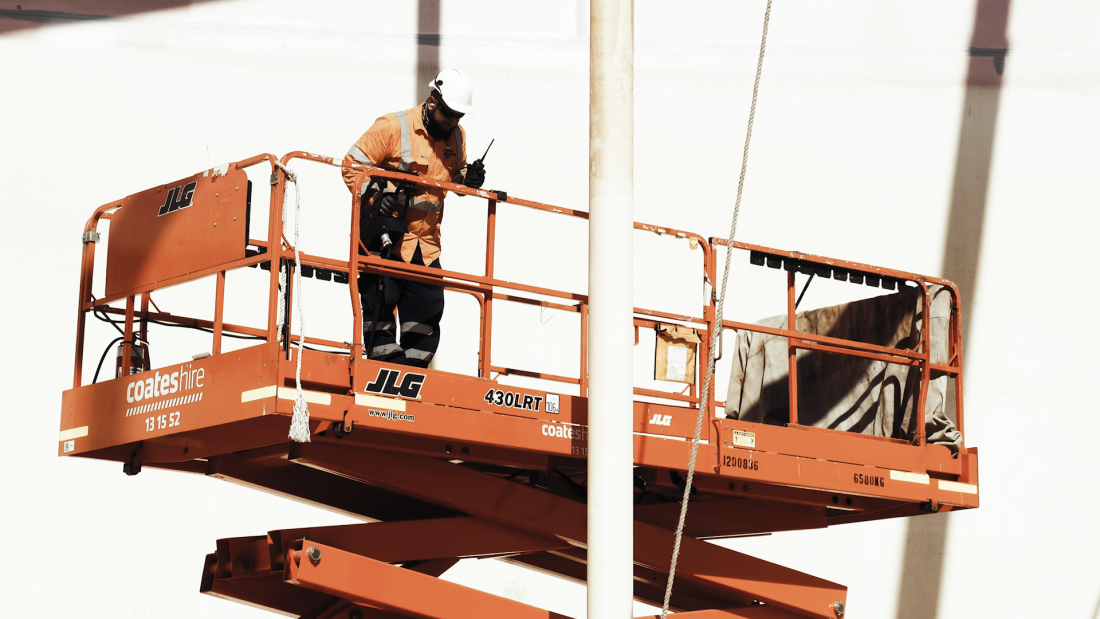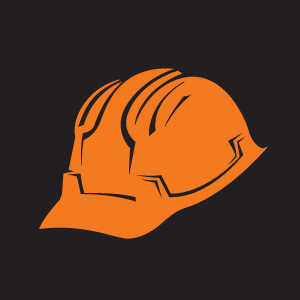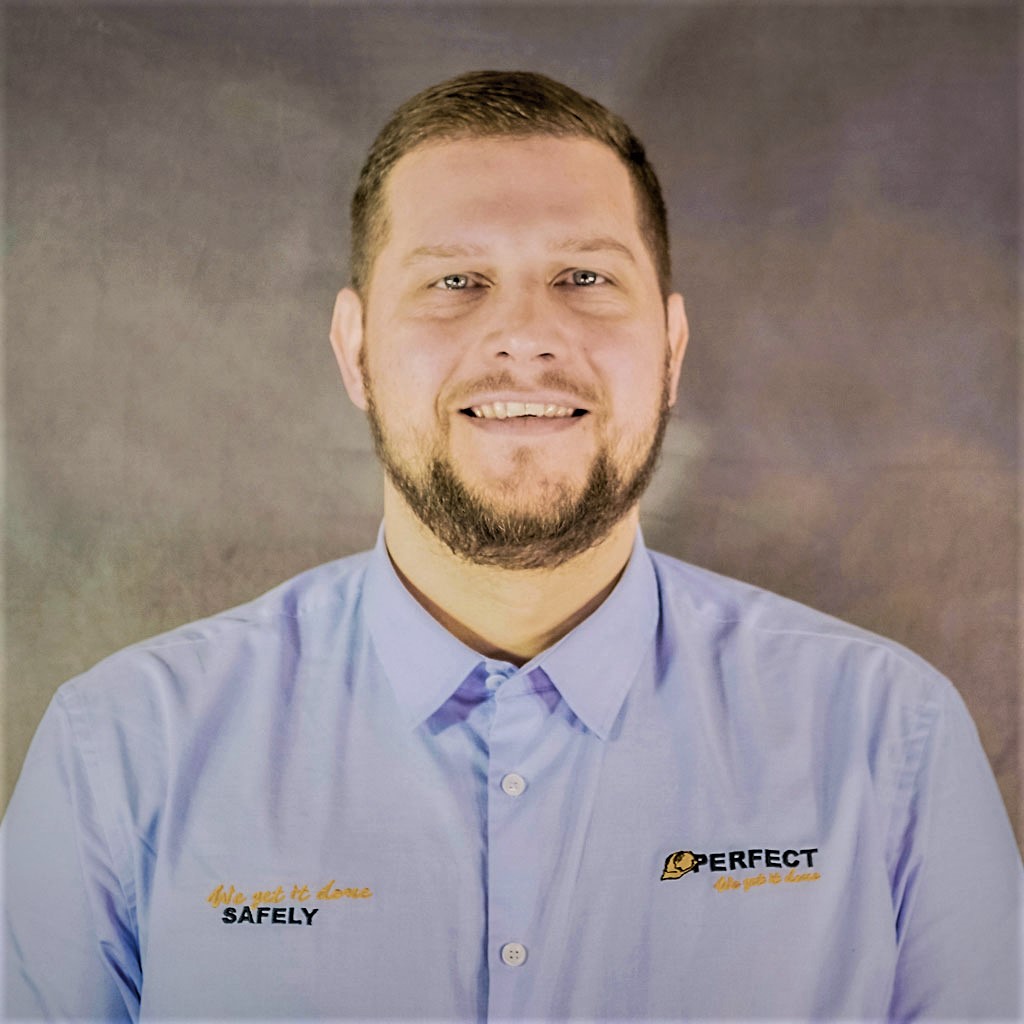Why We Work Dangerous Jobs
- magda

By Daniel Green
Not to cause alarm, but the Australian Bureau of Statistics reckons our fair industry is one of the most dangerous places we could work. Lucky for us we live in this great nation whose standards are part of a global movement towards safer and safer work practices. This is an evolving movement with a long way to go. So unfortunately until then, the danger is a part of our lives. And while most right-thinking individuals steer well clear of the stuff, there are the eclectic few that dive into it head first. On the surface, we could assume these people are reckless. Perhaps unhinged. At minimum adrenaline junkies. But like the proverbial iceberg, there’s definitely more to this than meets the eye. Read on.
Let’s Be Definite.
There’s an element of risk in almost everything we do. Those of us sporting steam burns from frothing our milk with the office cappuccino machine will know what I’m talking about. Just kidding [but also not – steam burns can be a very serious injury]. By definition, a dangerous job is any task that can cause injury, harm, or peril through increased risk or increased frequency of risk. Basically, it’s a job that’s more dangerous than most and can really, truly hurt or kill you or others. A few romanticised images spring up here. Like air force test pilots, explosive demolition specialists, underground miners, and oil rig drillers. And while this feeds our hunger for tough male icons who are casually crushing it, the reality is far less sexier and is no laughing matter. In 2017, the Australian Bureau of Statistics reported that the seven most dangerous jobs we have are:
- Labourers – 56 deaths
- Road and rail drivers – 44 deaths
- Farmers and farm managers – 21 deaths
- Technicians and tradespeople – 17 deaths
- Design, engineering, science or transport professionals – 14 deaths
- Community and personal service workers – 14 deaths
- Machine operators – 7 deaths
If you look closely, five out of those seven jobs intermesh with construction.
But Why?
Despite being aware of the risks. Despite knowing the potential outcomes. Day after day people consciously chooses to work in these professions. If it’s so dangerous – what exactly attracts us to these roles?
It’s Not Your Choice
We don’t get to choose where we’re born so for some of us it comes down to a lack of opportunity. For example, at the Chittagong ship graveyard in Bangladesh, chemical and petroleum tankers are sailed up onto the beach to be carved into scrap. Using oxy torches, grinders, and huge hydraulic winches every day 200 000 men and women head off to feed the world’s largest ship-breaking industry. Bangladesh is one of the world’s poorest nations, meaning that high-risk job is expected and safety standards are non-existent. Noxious gases often explode. Hulls are lined with friable asbestos insulation. Sheared metal edges fall with terrifying frequency. In ship breaking just in Bangladesh, there is one recorded death per week, with up to twice that unreported. But with poverty, a real threat, and a $2 a day income, the majority of the workforce simply doesn’t have a choice.
The Thrill
On the other hand, living in 2021 in Australia can be quite a vanilla existence. There’s no immediate threat of plague, no global wars and for the first time in human history, very few of us are wondering where our next meal is coming from. We have got it good. But is it too predictable? For some of us, it is. As much as we crave safety and security, we humans also need a bit of excitement. Working in a quote-unquote dangerous environment can satiate that innate desire for danger. And while we don’t condone a career change just to spice things up, nothing gets the adrenals pumping like a little bit of fear after all.
The Tip of the Spear
When peril is staring you down and others are relying on you for a safe outcome, you’re forced to elevate your thinking and actions to near their maximum. Every cell in you is focused on one single task or there may be disastrous consequences. Most of us would feel mighty uncomfortable in a situation like this. A select few rise to the occasion. Studies have shown that those that do rise often feel great importance to their work. As though it is one of the sole reasons for their existence. Like without it their life would lack a sense of meaning. Often these people have a strong sense of civic duty and are drawn to roles of service like LEO’s or emergency services.
Benjis, Bankroll, Bread
Short-term pain equals long-term gain and for some, this means working dangerously for a few short years for that larger end goal. Workers at BHP’s Olympic Dam uranium mine will attest to that. Likewise with offshore oil and gas rigs workers. The pay is extremely high for a reason: the hazards are through the roof. It’s rare these workers plan long and illustrious careers in extremely hazardous environments so the plan is to get in, make your money and get out before your health catches up with you.
Status
We all yearn for a little more prestige in our lives. In other words, it’s one of the many things that drive us. So it would come as no surprise that one of the motivating factors for dangerous work and high-risk job is an elevation of ourselves in our social standing. Before you argue that doctors and lawyers will always rule the air – have you ever spoken to a deep-sea diver at a party? Or a mercenary just back from Afghanistan? Or someone who’s worked a season at the Mawson Station in the Antarctic? People are drawn to those who live dangerously and sometimes, the thing that drives us is the desire to do something no one else can do.
Nobody’s Perfect
As a civil worker who’s spent the majority of his time with tier ones, Perfect is one of the safest construction companies I have had the pleasure of working for. It is one of the few that has no incongruence between what it says and what it does. Perfect continually strives for more training, less risk, and increased awareness of danger. Everyone feels comfortable about speaking up. There’s a pre-start for every machine, truck, and task we do. There’s a plethora of PPE at all times. Workers are provided hi-vis uniforms. Supervisors ensure protocols are followed. Management is always at the end of the line. Above all, safety is number one.
So when founder and director Mateusz Jedruszek embedded a safety message into the company branding in 2020 it wasn’t a flippant choice. It was a genuine stride towards a safer culture. Towards protecting the most valuable assets we have: our people.
In short, dangerous jobs are disappearing. But not fast enough, meaning our children and grandchildren may have to face risks when they go to work. Their protection is paramount – it is why we do what we do. So if there’s one phrase that sticks with you, remember:
We Get It Done, Safely.









